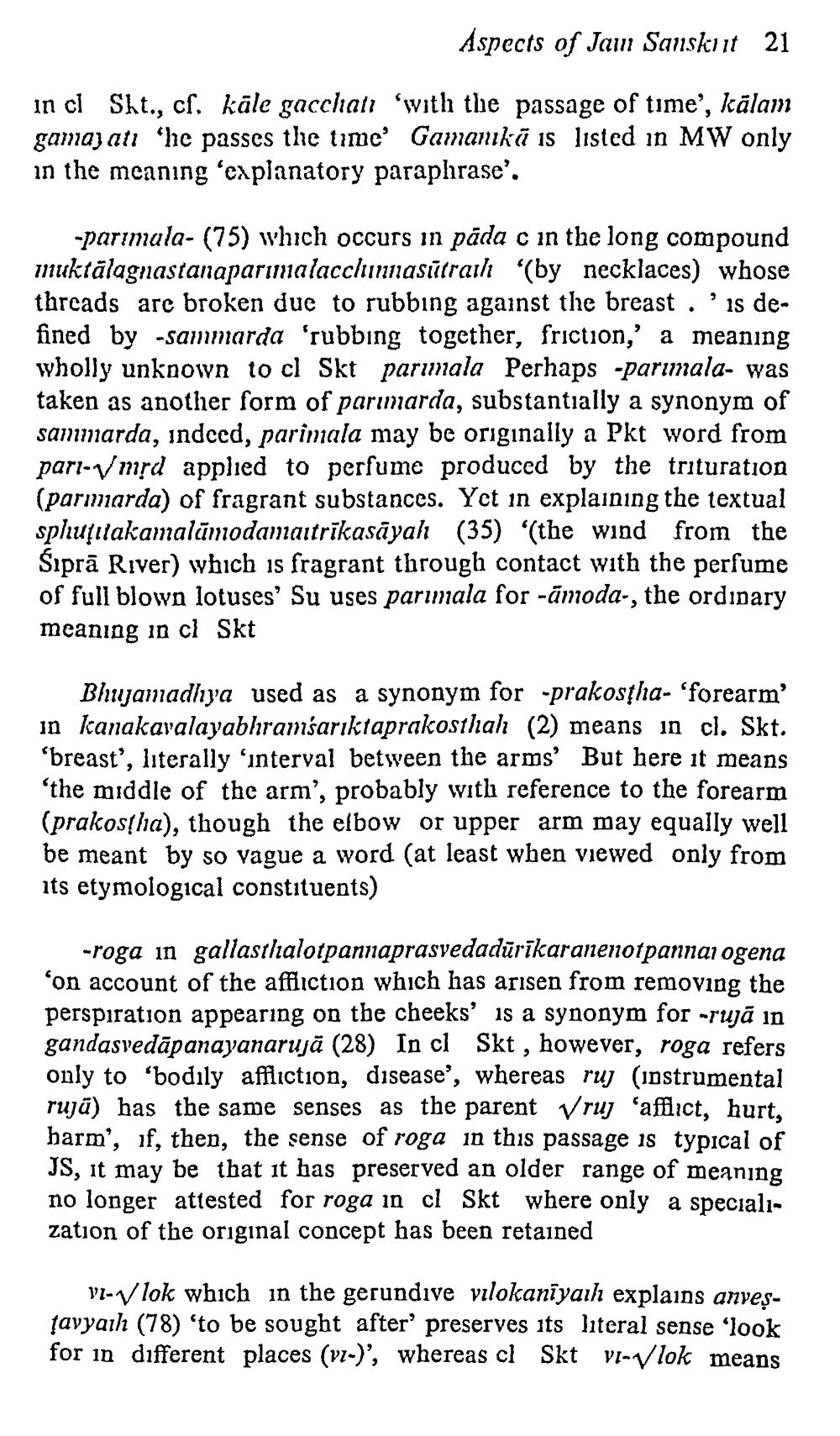________________
Aspects of Jam Sanskrit 21
with the passage of time', kālam Gamanikā is listed in MW only
in cl Skt., cf. kāle gacchat gamayatı 'he passes the time' in the meaning 'explanatory paraphrase'.
-parimala- (75) which occurs in pada c in the long compound muktālagnastanaparımalacchınnasūtraih (by necklaces) whose threads are broken due to rubbing against the breast. is defined by -sammarda 'rubbing together, friction,' a meaning wholly unknown to cl Skt parimala Perhaps -parimala- was taken as another form of parimarda, substantially a synonym of sammarda, indeed, parimala may be originally a Pkt word from pari-v/mrd applied to perfume produced by the trituration (parmarda) of fragrant substances. Yet in explaining the textual sphuļutakamalāmodamaıtrīkasāyah (35) '(the wind from the Sipra River) which is fragrant through contact with the perfume of full blown lotuses' Su uses parimala for -āmoda-, the ordinary meaning in cl Skt
Bhujamadhya used as a synonym for -prakostha- 'forearm' in kanakavalayabhramsarıktaprakosthah (2) means in cl. Skt. 'breast', literally 'interval between the arms' But here it means 'the middle of the arm', probably with reference to the forearm (prakostha), though the elbow or upper arm may equally well be meant by so vague a word (at least when viewed only from its etymological constituents)
-roga in gallasthalotpannaprasvedadūrīkaranenotpannaι ogena 'on account of the affliction which has arisen from removing the perspiration appearing on the cheeks' is a synonym for -rujā in gandasvedapanayanarujā (28) In cl Skt, however, roga refers only to 'bodily affliction, disease', whereas ruj (instrumental rujā) has the same senses as the parent Vruj afflict, hurt, harm', if, then, the sense of roga in this passage is typical of JS, it may be that it has preserved an older range of meaning no longer attested for roga in cl Skt where only a specialızation of the original concept has been retained
VI-lok which in the gerundive vilokaniyaıh explains anvestavyaih (78) 'to be sought after' preserves its literal sense 'look for in different places (v-)', whereas cl Skt vi-lok means




